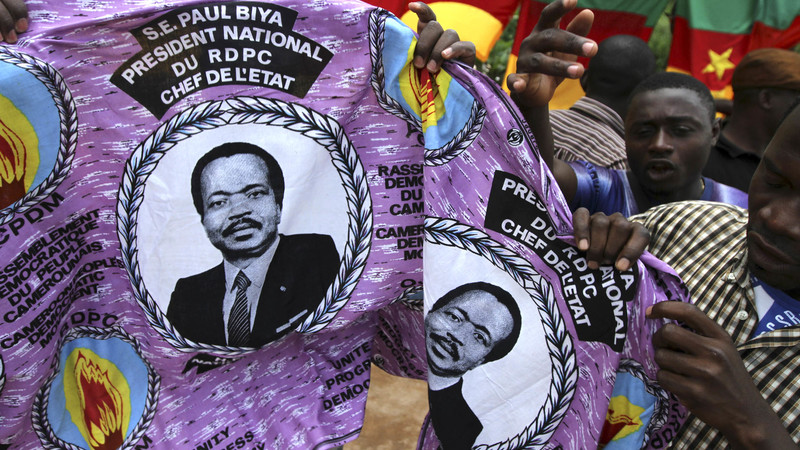18, February 2019
French court rules on priest’s attempt to block child abuse film 0
A French court on Monday will decide whether to block the release of a film by acclaimed director François Ozon based on real-life victims of sexual abuse in the Catholic Church, just two days after it picked up a prize at the Berlin Film Festival.
Ozon, 51, worked for years in secret on “By the Grace of God”, which won plaudits and the runner-up Silver Bear Grand Jury prize at the Berlinale on Saturday. It is the most-high profile dramatisation of the systematic cover-up of widespread sexual molestation by clergy since the Oscar-winning “Spotlight”, set in Boston and released in 2015.
But even before the Berlin premiere, a priest accused of molesting more than 80 boys, Bernard Preynat, had gone to court to demand that the film not be shown in France until after his trial, which is due to start later this year.
A lay voluntary worker for the Lyon diocese, Regine Maire, has also issued a legal challenge to have her name removed from the picture, which is set for release in French cinemas on February 20. The court’s ruling comes as Cardinal Philippe Barbarin, the archbishop of Lyon, and five others including Maire await a verdict on charges of covering up the abuse.
Ozon — best known for “Swimming Pool” and “8 femmes” — told AFP he had hoped the tortuous series of cases would have finished by now, but the film should be shown for “the public good”.
‘Breaking the silence’
“When you try to break the silence, there is always resistance,” he said. “I don’t think this is happening by accident, because it is a film which is trying to break an omerta, and which deals with the silence.” The scandal first broke in 2015 when a former scout, François Devaux, went public with allegations that Preynat had abused him as a child 25 years earlier.
Preynat was suspended by the church later that year and it eventually emerged that the cardinal had confronted him about “the rumours” in 2010 but the priest claimed he had changed.
Four years later Barbarin went to the Vatican about him without contacting the police. The film traces those events but sticks close to their emotional impact on three victims-turned-activists, who begin to confront their trauma publicly with the generally strong support of their families.
Ozon said he had consulted several members of the survivors’ group, La Parole Libérée (Freed Speech), Devaux set up, which has gathered the testimony of 85 people who claim to have been abused by Preynat in Lyon.
But the director said he tried to be “as even-handed and objective as possible. It is not a film of goodies and baddies, it is much more complex than that for the affected families and the institution itself, and I tried to show that”.
“By the Grace of God” centres on Devaux and Alexandre Dussot-Hezez, “a fervent Catholic who discovers at the age of 40 that a priest who abused him is still alive and has access to children” through the church.
Devaux told AFP that Ozon’s approach to the victims’ painful experiences had been “very humane and very passionate” given the fact that for them and their families, they had been like “time bombs” waiting to go off.
Church stance on paedophilia ‘changing’
Ozon said he wanted to show the “negative repercussions (victims can suffer) and the distressing boomerang effects on their partners, children, families and friends”.
Asked about Preynat’s bid for an injunction, Ozon insisted there were no major factual revelations in the film for anyone who has been following the case.
“We are facing some pressure regarding the release of the film but everything in it is already well-known in France,” he told reporters in Berlin.
“Most of the people attacking us haven’t seen the film yet,” Ozon added. The filmmaker hopes his intimate portrait of the victims’ fight for justice will spark greater understanding of a difficult subject that mainstream cinema has rarely confronted.
Ozon said the reaction from several French bishops and senior clergy who have seen the film had been positive, adding that he hoped it would provoke debate beyond France. “The church seems to be changing its stance on the scourge of paedophilia and the silence hanging over it,” he said.
(FRANCE 24 with AFP)

























18, February 2019
Southern Cameroons: Kidnapping at Catholic school in Kumbo 0
There is more bad news from Cameroon and again from the town of Kumbo where Independent Catholic News reported deaths through violent action by security forces.
A kidnapping occurred at 5am local time on Saturday 16 February at St Augustine’s Secondary College, a Catholic school. Secessionist rebels supporting setting up a new state ‘Ambazonia’ entered the school and kidnapped at least 145 pupils, the majority girls, who were subsequently released.
Early reports suggested a figure nearer 200 including members of staff but this has not been corroborated. The number is lower than it would have been in the daytime during the working week.
Kumbo is the second largest centre in the North West Region, having its own bishop. It is 110 km from Bamenda where a Presbyterian school suffered a kidnapping and whose auxiliary bishop Michael Bibi was twice kidnapped while travelling on church business.
This is in the context of legitimate grievances by English speakers against the government led by French speakers seeking to impose their language on the educational and legal systems.
Cameroon’s 86 year-old President Paul Biya, in power for 36 years, was declared re-elected recently. His main opponent Maurice Kamto has been arrested and charged with rebellion.
Philip Egan, bishop of Bamenda’s twinned diocese Portsmouth, has urged his flock to write to the Minister for Africa Harriett Baldwin urging the British government to bring pressure on Cameroon to reduce local tensions.
Source: Independent Catholic News